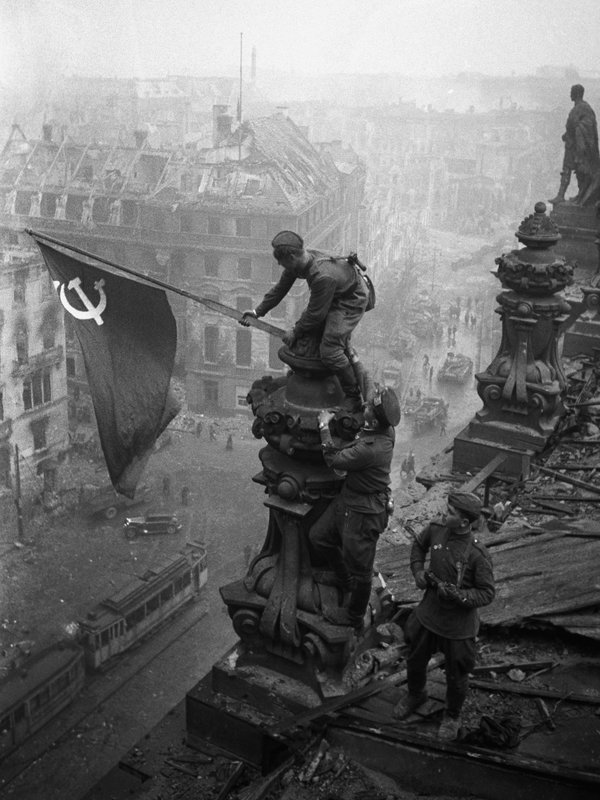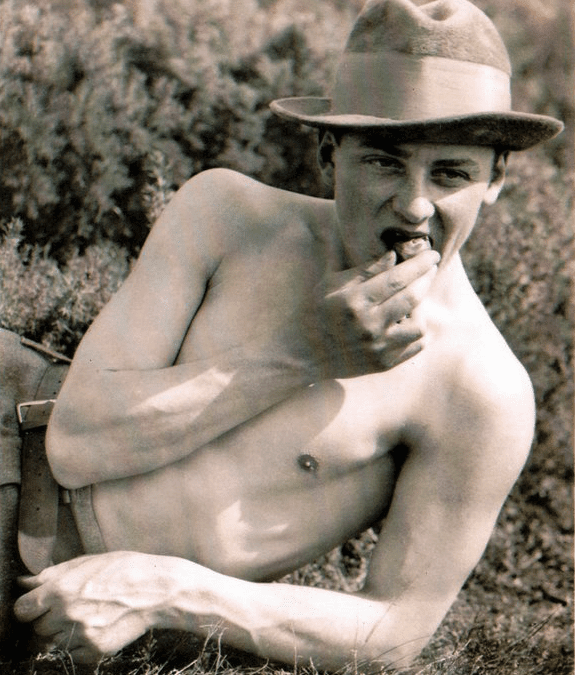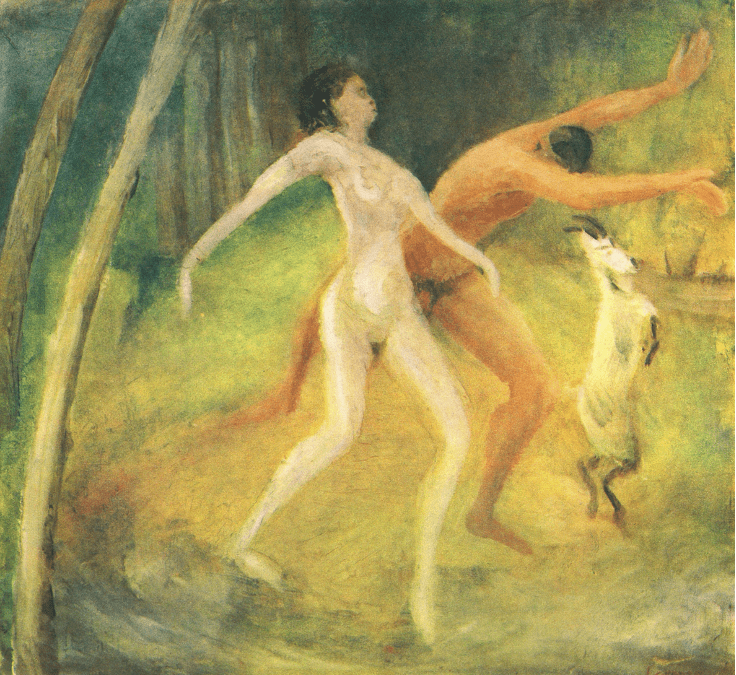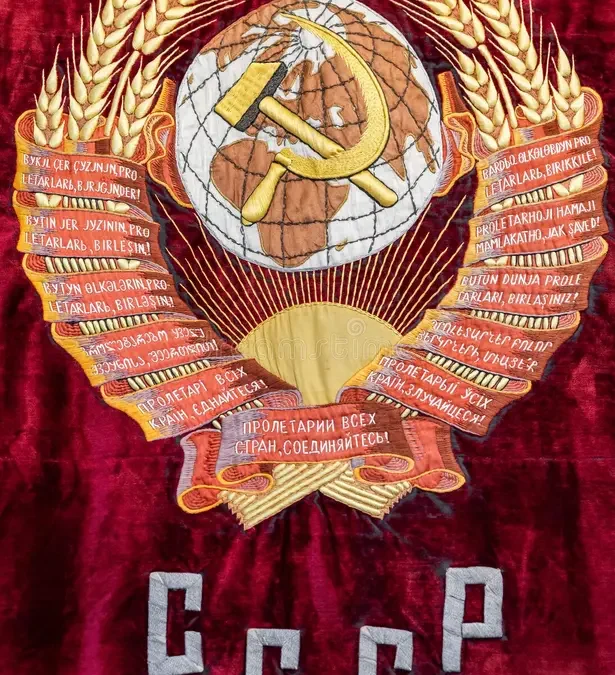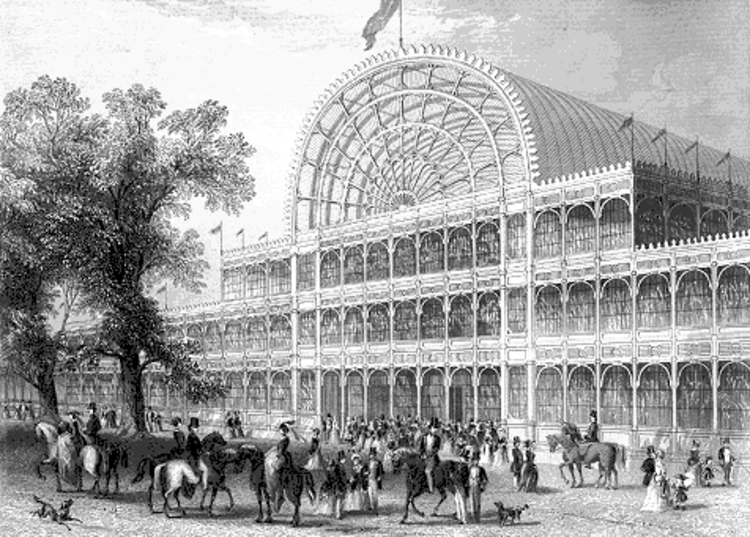This article was commissioned by the Institute of Arts and Ideas for their website IAI News. An edited and shortened version of the article may be found here, as part of the March 2018 edition on ‘Memory’. My brief was to write about how the Second World War is remembered in Britain, Germany and Russia.
My existence represents peace. I am born of a post-war Anglo-German union, my elder uncles having fought on both sides. My German grandfather served first in France and then in the East. The locations of service listed in his war passport ring a series of deafeningly mournful bells: ‘Doppelschlacht [twin battles] von Bialystock und Minsk, 22.6-10.7.41. Schlacht bei Smolensk, 8.7-5.8.41. Verstoß [assault] gegen Moskau und Woronesh 4.10-5.12.41. Angriffenschlacht [offensive] im Raum Kursk 4.7-6.7.43.’ After the war, perhaps by conscious or unconscious compensation, my uncle worked with the Russlanddeutsch refugees in his small Rhineland town. His learning of Russian later encouraged my own, and his godson, who lives in the closed city of Seversk which is attached to Tomsk, visits me regularly in London. How all so inconceivable in 1945.
My uncles’ memories of the war are dissolving into old age. As I write, we are living through the last phase of live memories of killing, injuring, and being injured. Then we will live through the last phase of live memories of black-outs and air-raid warnings, of running to the Tube, U-Bahn or Metro station, to the Anderson shelter, Luftschutzbunker or Bomboubyezhishche, of being evacuated, being occupied, or fearing it.
But after that, the War will still live on: through people’s memories of what their older friends and relatives have told them of these things (first directly, then at second hand); through books, articles, films, podcasts, school lessons and school trips; through statues, sculptures, memorials, ceremonies, commemorations, holidays, cultural habits, proverbs, allusions, words and phrases (‘keep calm and carry on’, ‘arbeit macht frei’, ‘to russkomu khorosho, nemtsu smert’’ [what’s good for a Russian will kill a German]).
The afterlives will vary between these countries – though a post-national, pacific ideal would involve the sharing and convergence of these memories. The opposite would be their divergence into a source of World War Three, as the German memory of the First was a source of the Second.
It is therefore perhaps a source of hope that the tendency of individuals to repress negative memories and dwell on positive ones seems to be inverted at the level of the collective when it comes to war. What is the Battle of Waterloo to the British, compared with the Battle of Hastings? What is Paris 1872 to the Germans, compared with the Battle of Stalingrad? And what is Paris 1814 to the Russians, compared with Borodino 1812? Thus it is that the Second World War is less commemorated in Britain than the First, not just despite but because of the fact that the First is less a source of celebration. The First World War’s large, prominent and ubiquitous public monuments both acknowledge the large loss of life and try to justify it, whilst the Second World War is often a stonemason’s addition covering fewer lives, and with less to justify. Certainly, the latter war is a repository of pride – but not such pride and joy that has produced a day, a ceremony, or a single major monument.
East Germans, defined by the Soviets as victims of Naziism, were allowed to mourn the catastrophe that the Second World War had been to them, even as they were required to mourn, memorialise and compensate their Soviet victims. In West Germany by contrast, Vergangenheitsbewältigung (coming to terms with the past) was conducted in such a way as to prohibit self-pity and inhibit mourning. Monuments to the fallen were few and awkward, as though unsure how and whether to express themselves in relation to the huge, acknowledged guilt. The memorial sites that were made out of former concentration camp sites from the 1960s onwards diverged according to the polities of their location; those in the West remembered, especially, Jewish victims and German guilt; those in the East emphasised Communist victims of many nations, and Fascist guilt.
In Russia there was no overshadowing greater war, as in Britain, and no foreign occupation, as in both parts of Germany, to direct the course of their grief. Such guilt and grief as was felt with regard to the Soviet treatment of its own citizens in this period was substantially anaesthetized by the German invasion. It justified Stalin and Communism in the minds of the people that they were not, and that they resisted, Gitler and fashizm. The statistics speak loudly and pertinently: 0.4% of British, 9% of Germans, and 20% of Soviets, died in the course of the war. Little wonder, then, that it is Russia that has the commemoration day: Victory on 9th May. It alone calls the war the Great Fatherland War, echoing Britain’s Great War, and stressing the male (otechestvo) rather than the female (rodina) national personification, as though acknowledging that it was largely men who died. Russia alone has recently increased the level of its commemoration, since 2015 inflecting the celebrations of 9th May with mourning in the form of the Immortal Regiment marches of people carrying photos of relatives who died. Encouraged by the government at a time of increased national defensiveness in order to foster a sense of national unity and remembrance of the disastrous effects of invasion, the development also coincides with the last years in which survivors can participate. Such days of remembrance will themselves be days that people will remember.
If such differences are understandable in relation to the countries’ varied experiences, less so are those between their attitudes to each other. German feelings are predictably mixed between guilt, and resentment at the manner of their Soviet occupation. But the ongoing English Germanophobia, emergent in the form of jejune mockery and abuse whenever the English and German teams play each other at football, is viewed with little comprehension in Germany or Russia. The contrast with Russia, indeed, is striking. It is as though the sheer scale of their losses prohibit hatred, because such hatred would make life unlivable. Soviet ideology also played a part, by defining the German people as the victims of an ideology and a Führer; on February 23rd 1942 Stalin said: ‘It would be ludicrous to identify Hitler’s clique with the German people, with the German state. The experience of history indicates that Hitlers come and go, but the German people and the German state remain’. Such thinking joins with centuries of close cultural and economic relations prior to the war, and decades of shared experience of Communism after it, in effacing the hatred that might otherwise be engendered by four genocidal years.
Such a broad-brush overview should not efface the controversies that have flourished in each of these countries about the memory of the war. In Britain and Germany, historians’ debates have centred on the agency of Hitler and, more broadly, the exceptionalism or comparability of Nazi guilt. After AJP Taylor and Hugh Trevor-Roper debated this in the nineteen-sixties, the nineteen-eighties German Historikerstreit reversed their relative positions, since it was the left that resisted the right’s assertion of the comparability of, reasons for, and limitations of, German guilt.
In Russia the debate has centred on Stalin. It is widely acknowledged that the War saved him, and possibly Soviet Communism, from revolution. It is fiercely debated to what extent Stalin was responsible for the Soviet victory, or imperilled it, and whether and how far any credit he bears for the victory may be weighed against his crimes against his own people. In Britain and Germany, too, Stalin has been a source of debate between left and right over his equivalence or otherwise to Hitler (Peter Hitchens asked, in response to the 2017 film The Death of Stalin, ‘whether anyone would think the final days of Hitler, the other great European mass-killer, torturer and tyrant, would make a good comedy, with Goebbels, Himmler and the rest of the Nazi elite played for laughs’).
During the 1990s in Russia, Stalin became the focus of patriotic nostalgia for some of those who were suffering most at the time, even whilst testimony to his crimes was encouraged by NGOs such as Memorial, and an increasingly-powerful Orthodox Church. He is now a focus of admiration particularly amongst Communists (by far the largest opposition party), the elderly, and Georgians. Those Stalin monuments that have been restored in the post-Soviet period, and the very few that have been built new, are predominantly local initiatives on the part of elderly people, or else are in Georgia. Stalin’s image in Russian society as a whole, however, remains tensely in the balance.
A further clue as to how the war is remembered in these countries may be found in its representation on screen. In Britain, two features are striking. One is the presence of gentle, self-deprecating and farcical humour, as for example in Dad’s Army (1968-77), ‘Allo‘Allo! (1982-92), and Hope and Glory (1987). Such lightness of touch fits with the British wartime propaganda posters, such as ‘Careless talk costs lives!’, which had a whimsical humour absent in German and Soviet posters of the period. This is explicable in part by the relative paucity of British losses, and in part by a good-humoured response to the Pyrrhic aspects of the eventual British victory (involving it ceding its Empire, its leadership in the Western world to the United States, and its economic and industrial dominance in Europe to West Germany). But it also fits with what might be thought of as more durable aspects of English character: the upper-class inclination for understatement, the working-class readiness to meet horror with black humour, which was noted in the trenches of the First World War – and perhaps also that aspect of culture which Virginia Woolf in her 1919 essay ‘Modern Fiction’ thought explained the relative lightness of English compared to Russian literature: ‘the instinct to enjoy and fight rather than to suffer and understand. English fiction from Sterne to Meredith bears witness to our natural delight in humour and comedy’. On the evidence of its film and television, the British experience of the Second World War did not overwhelm this instinct.
These reasons may also help explain the relative paucity of artistic ambition in British film responses to the war. Comedy can of course be both artistically ambitious and emotionally weighty, but this has not characterised the British war films. Post-war British mainstream cinema has been guided by Hollywood away from the complex or avant-garde. But it is also as though the British have ceded to other countries, such as Germany and Russia, the grounds and motivation to take the War entirely seriously. Moral debate may be found in Bridge on the River Kwai (1957), and symbolic realism in Atonement (2007), but both treat the war more as a vehicle in which to explore ideas, than as an inescapable historic fact which must be confronted, thought through, lived down, and lived beyond.
Nowhere in Britain, as far as I am aware, has there been such an artisically- and morally-ambitious attempt to grapple with the war as the 1978, 442 minute-long Hitler – ein Film aus Deutschland (admittedly, a production supported by the BBC, suggesting that Britain’s seriousness has expressed itself in European co-productions). Director Hans-Jürgen Syberberg said, of his meta-filmic, absurdist, avant-garde excursus, that if Hitler is to be put on trial by cinema, then he must be tried as a film-maker, in order to ‘defeat him cinematographically, turning his weapons against him’. He also thought that by wresting irrationalism away from the Nazis he would be able to help Germans perform Trauerarbeit (the work of mourning). Director Edgar Reitz, in his 1984 historical family epic Heimat, resolved to enable Trauerarbeit differently. Reacting against the depiction of widespread German guilt in the 1978 American soap opera Holocaust, he aimed at a naturalistic depiction of a Rheinland village in the nineteen-twenties, thirties, and the war, representing most of its people as ignorant of the Holocaust as it happened. Whatever the accuracy of this depiction (and it has been disputed), the series was ambitious in its historicism, and in its assertion of the right of Germans to take stock of, and remember, their twentieth century history in its sequence (subsequent series of Heimat took the family chronicle up to the Millennium).
More recently, Germany has produced Anonyma (2008), based on the real diary of a German woman who lived through the fall of Berlin to the Red Army. More in the mode of a mainstream action film than either Hitler or Heimat, it was notably made with the collaboration and approval of Russian as well as German veterans, and is generous in its sympathies for all – the raped German women, the wary, exhausted and traumatised Soviet soldiers bewildered at the wealth of the country that had chosen to invade their own, the perforce passive elderly German men, the idealistically Hitlerian youths. In its generous, iridiscent sympathy and collaborative production (it was filmed partly in Poland), it is a model of pacific and supra-national remembering.
Russia, unlike both Britain and Germany, had its period of triumphalist film-making under Stalin, represented in The Fall of Berlin and The Battle of Stalingrad (both 1949), neither of which however under-represents the Soviet losses, as is also true of the recent war epic Stalingrad (2013). The hugely-popular 1972 television series Seventeen Moments of Spring is in another mode. Representing a Russian undercover agent posing as a SS-Standartenführer in Berlin, this Russian response to the James Bond phenomenon almost inverts Bond’s character: Maxim Isaev is modest, ascetic, completely faithful to his absent wife, patient, merciful, and quietly brave. He likes the German people, and believes that he is helping them by undermining Naziism. His character gave an idealistic motivation to children, such as the young Vladimir Putin, to join the KGB, just as Bond may have pulled in his share of MI6 recruits.
Then there is the avant-garde line in Soviet and Russian responses to the war, exemplified in Ivan’s Childhood (1962), Come and See (1985, Belorussian), Cuckoo (2002), and In the Fog (2013, Belorussian). In all of these, the horrors of the war demand and receive the honour of silences, dark absurdism, and the rupture of realism. Particularly striking in this respect is Come and See, which represents the genocidal occupation of Belorussia – which lost a quarter of its population – by Einsatzgruppen. The camera follows the perspective of a boy partisan; its long takes are his gazes of horror. The soundtrack is a persistent drone: the ringing in the boy’s ears after he is temporarily deafened by a bomb, wailing women, buzzing flies, and the terrifying reconnaisance planes. The stylisation both intensifies and relieves the horror, as if the extremity of the atrocities distort the normal processes of vision and understanding, leaving the audience, like the deafened and traumatised Florian, in a dream-like world.
Films are the tip of the iceberg of memories of the war, which is more deeply, subconsciously, remembered in those features of culture which are its lasting products. In Britain, victory in the war and consequent permanent membership of the UN Security Council, combined with a collapse in international power, has produced a schizophrenic subordinate affiliation to the United States, nostalgia, and a dream of restored influence, expressed most recently in much of the pro-Brexit sentiment. Memories of the moment that Britain stood ‘alone’ against Germany in Europe embolden the ambition to again operate outside of the European Union, particularly since that body is dominated by Germany.
In Germany the war is remembered in an ongoing anti-militarism and distrust of nationalism, tempered on the one hand by Ostalgie and on the other by a old/new Cold War Russophobia (the latter is however not as strong as in Britain, for reasons that have nothing to do with the war). The theorist of nationalism Michael Billig proposed that ‘national remembering also involves national forgetting’, for example of national guilt. In West and unified Germany the same dynamic has operated the other way round – that national remembering has entailed national self-forgetfulness. But as time passes, this is decreasingly the case. The German joy at winning the 2014 football World Cup was in part a self-reflexive joy at the very permissibility, into which the country is growing, of feeling and expressing pride in itself.
In Russia, and even more so Belorussia, the war is remembered in a conservatism that is the counterpart of horror at wartime chaos. The war has also added to previous experiences (of the Mongols, Napoleon, Britain and France in the 1850s, Germany in 1914, and other Western powers in the Civil War) to create a fear of encirclement and desire for a buffer zone between itself and its enemies. This fear has in recent decades been goaded to a pitch by the Eastward expansion – contrary to explicit promises – of NATO and anti-ballistic weapons systems to Russia’s and Belorussia’s very borders. The ear of invasion is remembered too in the ongoing institution of military service, and the fact that many children, of both sexes, are taught how to shoot. On the other hand, the war’s heavy losses of men produced a competitive display of beauty amongst unmarried women which contradicted pre-war Communist feminism, and which – boosted in the 1990s by the post-Soviet collapse of employment amongst women, and their subsequent reliance on male income – has still not quite gone away. The tolerance extended to Germans in relation to the war has, of late, not been so fully extended to Ukrainian collaborators, who were heavily implicated in the Holocaust, and whose leaders (particularly Stepan Bandera) are venerated by such contemporary government-affiliated groups as the Azov Battalion. That is, events since the 2014 Ukrainian revolution have inflamed certain memories of the war in Russia.
The trajectory, then, is not one of the continual fading of the war’s influence – of Britain putting its Pyrrhic victory behind it, Germany gradually losing its pacifism and its pro-Israeli politics, and Russia regaining confidence; events, which may themselves be indirect products of the war, can revive memories of the war at any point. Brexit is voted for, and there is suddenly appetite for a film about the retreat from Dunkirk (2017).
But thinking further into the future, the most obvious markers of the war will, I predict, ossify and retreat. I used to have a job taking American tourists on historical tours of Europe. When passing through South Germany we would visit Dachau. On our rather silent coach ride back to Munich afterwards, I would often ask: ‘how long do you think this memorial site will last? Its visitor facilities and museum were considerably upgraded and expanded in 2003. Will such upgrades and expansions continue over time? Will Gedenkstätte Dachau still be here in a hundred years? Or a thousand?’ Their first response was invariably that it would be there forever. I doubt it. Or, to go on the evidence of the Medieval Torture Museum at Rothenburg-ob-der-Taube, which we would often visit after Munich, it might degenerate into the equivalent: a museum of Totalitarian Torture, complete with wax works, for the delectation of young children. At the very least, I think that the number of concentration camp memorials will decrease, until perhaps one in each country (if countries in the contemporary sense continue to exist) functions metonymically for the rest. This is already the case in Belorussia. In 1969 the village of Khatyn, 50 km from Minsk, was chosen to represent those 5,295 villages which were burned, often along with their inhabitants, by the Nazis (in the case of Khatyn, a Ukrainian battalion). Solitary bells, hanging from concrete towers scattered across the site of the former village, ring night and day every thirty seconds, to commemorate the rate at which Belarussian lives were lost throughout the duration of the War.
Ultimately, of course, what happens to the memory of the Second World War will depend on whether, how and when there is a Third. That is, on whether we are able to take sufficient warning and wisdom from memorial sites such as Dachau and Khatyn, on how inter-group hatreds may emerge and turn violent, in order to avoid such an apocalypse. That involves not focusing on the particularities, but the generalities, of the past – and then thinking analogically. As I would put it to my tourist groups: ‘the better-hearted of the German citizens of the 1930s doubtless deplored past atrocities, including for example recent British colonial ones. It was as easy for them to do so as it was hard for them to face and resist those in which their own people was involved. We have no right to visit a site such as Dachau if we do not spend our time there thinking about which groups are demonized today, how we are swayed by propaganda, and how we are made to support wars.’ That, I would suggest, is how the Second World War should be remembered.
